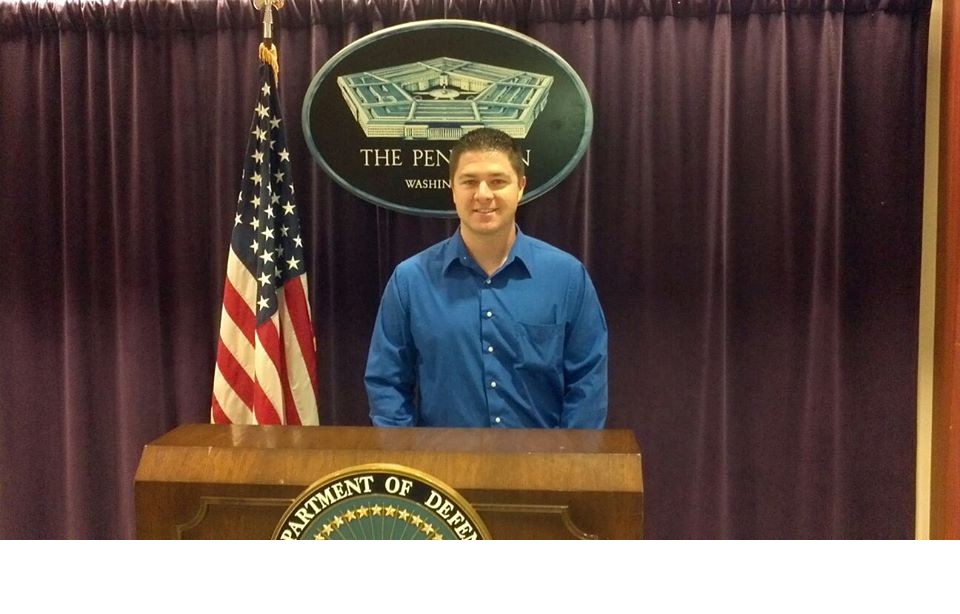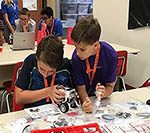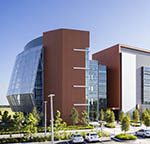 As the new school year begins, families will be squeezing in their last vacation, buying school supplies, or moving their young adults into their dorm rooms at universities across the country. High school upperclassmen will have to hit the ground running with SAT and ACT test prep and thinking about what colleges to apply to, all while maintaining their performance in the classroom and pondering what they want to do for their career and thus what they want to study during their post-secondary education. The latter part is really the difficult part.
As the new school year begins, families will be squeezing in their last vacation, buying school supplies, or moving their young adults into their dorm rooms at universities across the country. High school upperclassmen will have to hit the ground running with SAT and ACT test prep and thinking about what colleges to apply to, all while maintaining their performance in the classroom and pondering what they want to do for their career and thus what they want to study during their post-secondary education. The latter part is really the difficult part.
Most families send their kids off to college assuming the student will figure out what they want to do the rest of their life. Hopefully, students fall in love with one of their courses in their first two semesters and declare that subject as their major. This is a flawed approach that limits the student’s purview to what they may experience in their first year in college and as a function of what majors a given university offers. 80% of students enter college without a declared major, and 50% of those who do enter with a declared major will change it at least 3 times (The Wall Street Journal). Colleges and universities are extremely limited in the fields they are able to offer. For example, some are strong in engineering but have no presence in economics.

How is a student supposed to know what to study without being exposed to the vast number of career fields out there and understanding the connection between the education they choose and the paths to get them there? Additionally, there are many other factors to consider when picking what the student wants to major in or what university to attend, including cost, geography, size of the institution, and core competencies of the institution. Students also are constantly bombarded with information, or worse, misinformation about many career fields, career outlooks, difficulty of certain majors, and pressure from friends and family to pursue a major they later end up changing.
So how should a student identity what education and career field they want to pursue and what universities they apply to? Should they use the same heuristics that most people erroneously use such as the “college experience,” Greek life, the football team, or attending their parents’ alma mater? I recommend taking a deep dive into learning about a broad base of topics and learning the subtle nuances and differences between related fields to better understand what’s out there. For example, STEM (Science, Technology, Engineering, and Mathematics) has been the buzzword surrounding education for several years (or STEAM if you include the Arts) of the most in-demand and lucrative careers. Working with students, we study the differences between each of the domains and explore the overlap and interdependencies of related multidisciplinary domains. Then, once the student develops an interest in a broad topic, we research the subtle differences between each of the career paths within that field. For example, what is the difference between computer science and computer engineering? What about the difference between statistics and data analytics? These are all fields of study that lead to in-demand careers.

Investing the time, energy and resources into exploring education and career opportunities can help set up our next generation of scholars and leaders for success in life. It can help them better identify which universities offer majors in the fields they have an interest in, and save them time and money by minimizing the chances of switching their majors and costing them an additional year of higher education. Furthermore, performing this education and career research due diligence can help improve a student’s academic performance as well as spark the student’s interest in investigating grad school and jumpstart the student’s proactivity in investigating potential employers, internships and research opportunities. At EduCoachOrlando.com, we coach and advise students on STEM education and careers. We have significant experience in STEM education and careers, with practitioners in science, technology, engineering, and mathematics in government, industry and academia. As the saying goes, “Luck is when preparation meets opportunity.” At EducoachOrlando.com, we help prepare students for that opportunity.
 Dr. Andre Garcia is a human factors scientist/engineer at a large defense contractor and owner of EduCoach Orlando. He has previously worked as a research scientist at the Army Research Lab, Naval Sea Systems Command, and Air Force Research Lab, and in the Statistical Research Division of the U.S. Department of Commerce. He has a Master’s and Ph.D. in Human Factors and Applied Cognition from George Mason University, an MBA and B.A. from the University of Central Florida, and a certificate in Aerospace Project Management from Caltech. He currently serves on the UCF Alumni Board and previously served on the Dean’s Advisory Board for the UCF College Sciences. Visit EduCoachOrlando.com to learn more.
Dr. Andre Garcia is a human factors scientist/engineer at a large defense contractor and owner of EduCoach Orlando. He has previously worked as a research scientist at the Army Research Lab, Naval Sea Systems Command, and Air Force Research Lab, and in the Statistical Research Division of the U.S. Department of Commerce. He has a Master’s and Ph.D. in Human Factors and Applied Cognition from George Mason University, an MBA and B.A. from the University of Central Florida, and a certificate in Aerospace Project Management from Caltech. He currently serves on the UCF Alumni Board and previously served on the Dean’s Advisory Board for the UCF College Sciences. Visit EduCoachOrlando.com to learn more.


